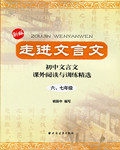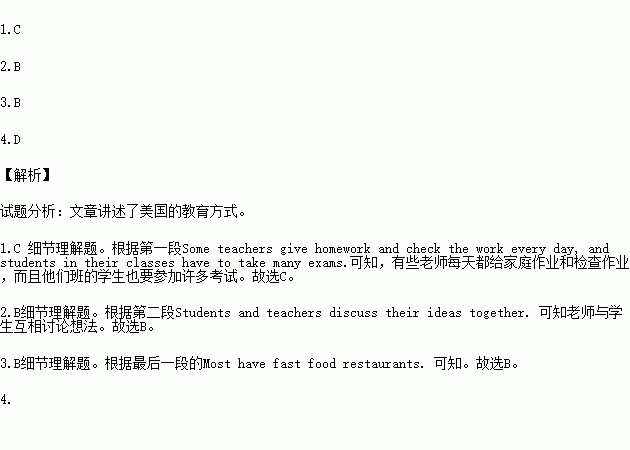题目内容
Teachers at American colleges and universities have many different teaching methods. Some teachers give homework and check the work every day, and students in their classes have to take many exams. Some teachers give only writing tasks. Some teachers always follow a course outline and usually use the textbook, while others send students to the library for tasks.[]
The atmosphere in some classrooms is very formal. Students call their teachers Professor Smith, Mrs. Jones and so on. Other classrooms have an informal atmosphere. Students and teachers discuss their ideas together. Teachers dress informally, and students call them by their first names. American teachers are different in their teaching styles.
At most American colleges and universities, libraries and learning centers can be used by students at any time. They can often use tape recorders, video machines and computers. They can buy books, notebooks and other things at campus stores. There are also services to students. They can get advice on their problems from their teachers. Colleges and universities usually offer facilities to students. Some schools have swimming pools and tennis courts. Most have fast food restaurants.
1.At American colleges and universities, some teachers .
A. never give their students any homework
B. give classes in the library
C. only ask their students to do some writing tasks
D. only give their students writing exams
2.In an informal class, .
A. students call their teachers Professor Smith, Mrs. Jones and so on
B. students exchange their ideas with their teachers
C. students have to take many exams
D. teachers wear business clothes
3.According to the passage, there are in most schools in America.
A. swimming pools
B. fast food restaurants
C. tennis courts
D. basketball courts
4.Which of the following is NOT mentioned in this passage?
A. Teaching methods.
B. Teaching styles.
C. College facilities.
D. University dining rooms.
 走进文言文系列答案
走进文言文系列答案
